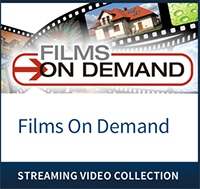Here are some example keywords or phrases that can be used to find specific information in the library catalog and academic databases:
Refine searches using operators like "AND," "OR," and "NOT," ensuring more precise and relevant results.
Standardized terms are used to categorize and organize content within the library catalog and academic databases to enhance search precision and efficiency.
Locate materials within the library in these call number areas.

(EBSCO) - Academic Search Complete, designed specifically for academic institutions, is the world's most valuable and comprehensive scholarly, multi-disciplinary full-text database.
Funded by Statewide Allocation

(Bloomsbury) - Authoritative, digital library of information on American and world popular culture, past and present-in a package as dynamic as the topic it covers.
Funded by College (FLVC Group License)

(ProQuest) - Research Companion provides information and lessons to move through projects such as research papers efficiently, generating better research outcomes and reducing frustration.
Funded by College (FLVC Group License)

(NewsBank) - Research diverse perspectives, topics and trends that align with areas of study such as Business, Health, Criminal Justice, Science, Humanities, Political Science and more. Features reliable, credible information from a wide variety of local, regional and national news sources.
Funded by Statewide Allocation

(Gale) Full Text journals with a focus on the State of Florida
Funded by State Library of Florida (FEL)

(Sage Publications) - Explores a single "hot" issue each week, ranging from social and teen issues to environment, health, education, and science.
Funded by Statewide Allocation

(Gale) - Offers global perspectives on issues of international importance and current world events and topics in the news related to these issues.
Funded by College (FLVC Group License)

(Infobase Publishing) - Offers a wealth of current topics research information, including pro/con discussions of hot issues, newspaper editorials, numerical snapshots of key topics, photos and graphics, and selected historical source documents.
Funded by College (FLVC Group License)

(Gale) - This database has relevant information and opinions on hundreds of today's hottest social issues.
Funded by Statewide Allocation
This video shows how effective written communication is possible for anyone, even those who struggle to complete a simple fax or e-mail. Methods for improvement include gauging the needs of the reader, keeping prose short and simple, emphasizing benefits, avoiding jargon and overblown language, employing a confident yet respectful tone, and more.
This video tells how to identify and cite reliable online and offline sources of information, carve textbook chapters into manageable chunks, and outline and revise papers—all elements that are essential to getting the job done well.
By implementing the lessons in this video, students can develop stronger arguments for their college essays by using multiple sources for research.


This video addresses the widespread ethical and legal problem of plagiarism, examining reasons used to justify content theft and the wide variety of forms it can take. Students and teachers talk frankly on-screen about their experiences with the problem and what leads some people to copy text or images from books, articles, Internet sites, and other students’ papers and projects
In this video, Professor Maurita Holland of the University of Michigan School of Information provides expert commentary and guidance on a range of research activities, including evaluating the credibility of Web content, documenting online sources, and paraphrasing—not copying—the words of others.
This video examines the behaviors that constitute plagiarism, their consequences, and the best ways to avoid them.

